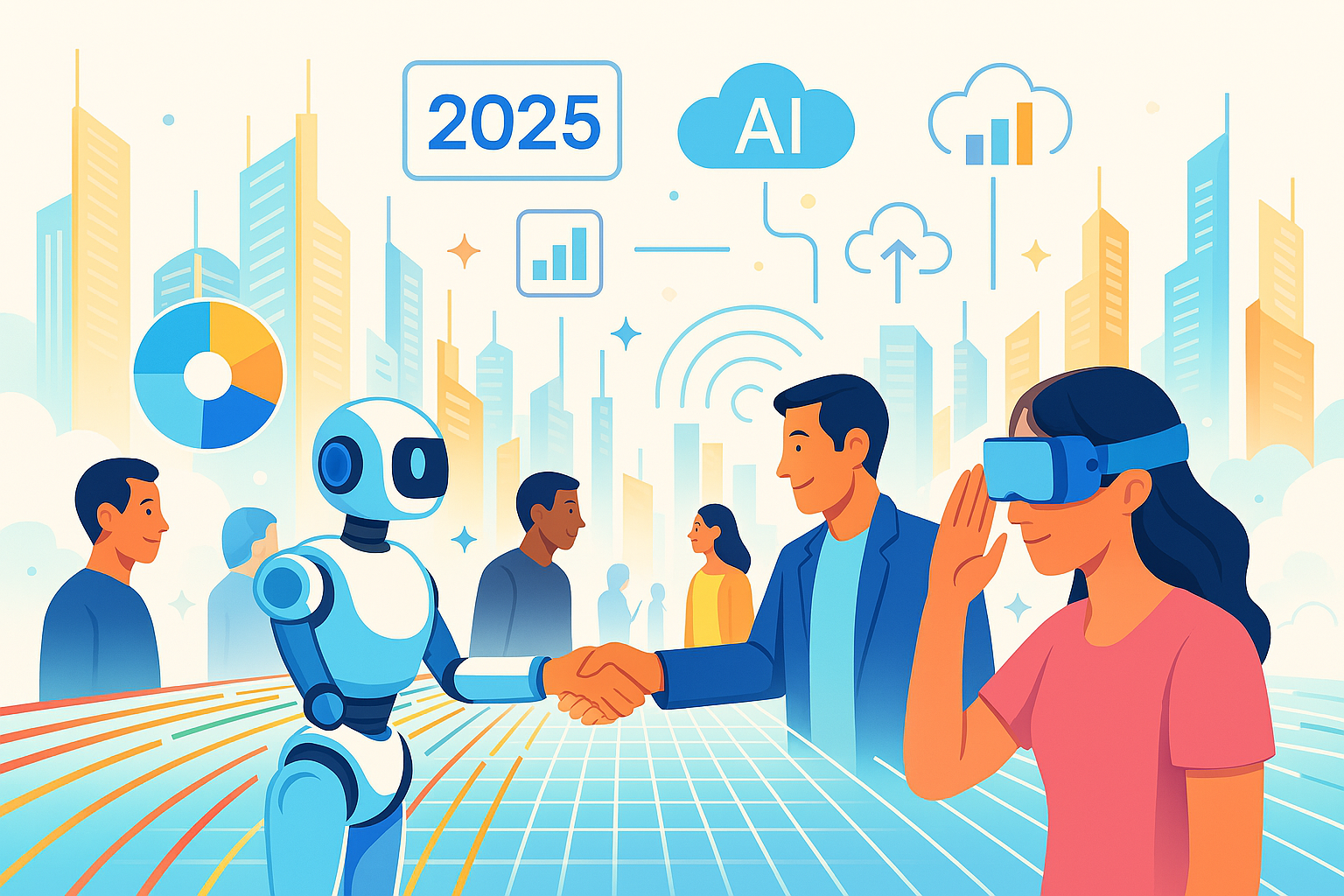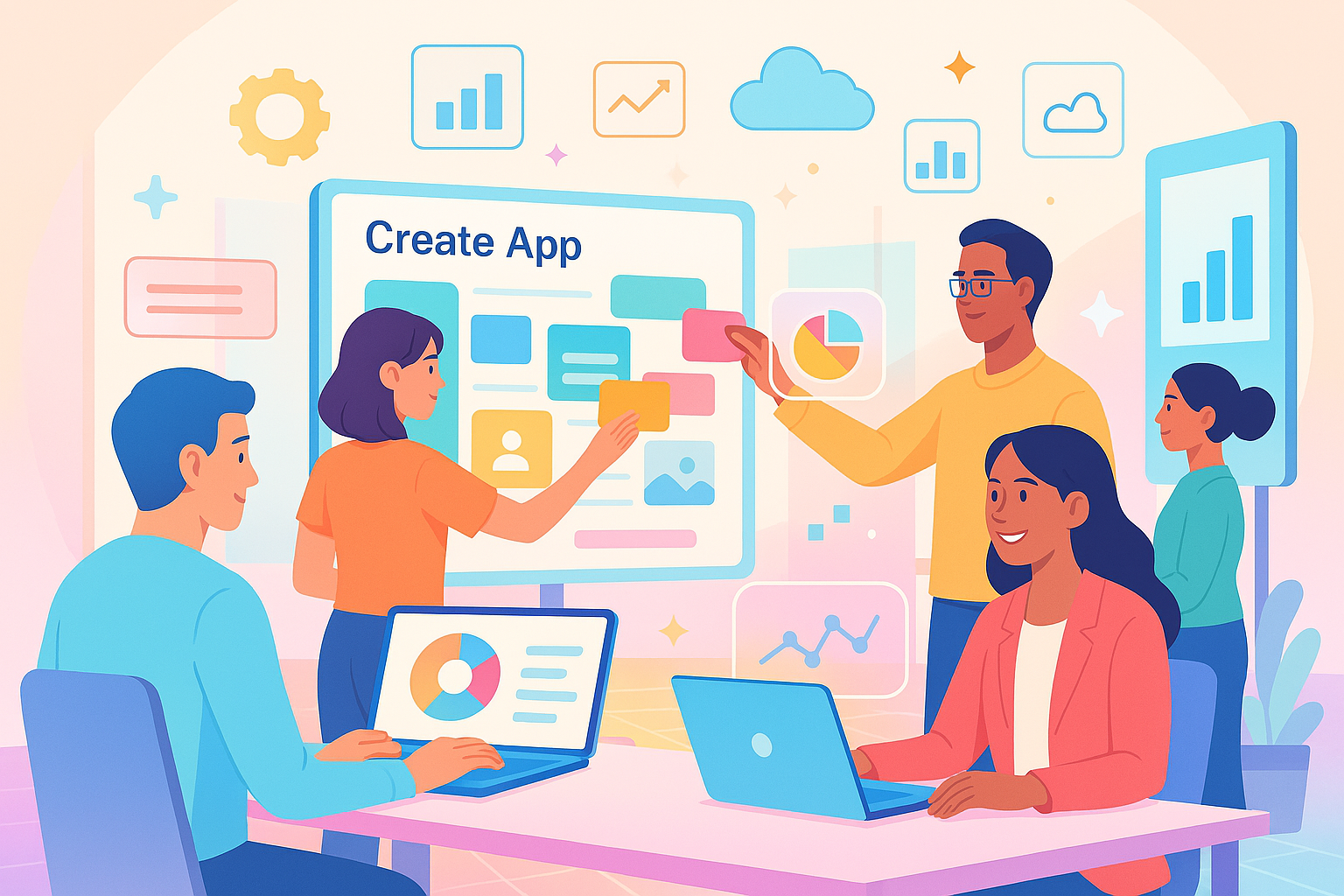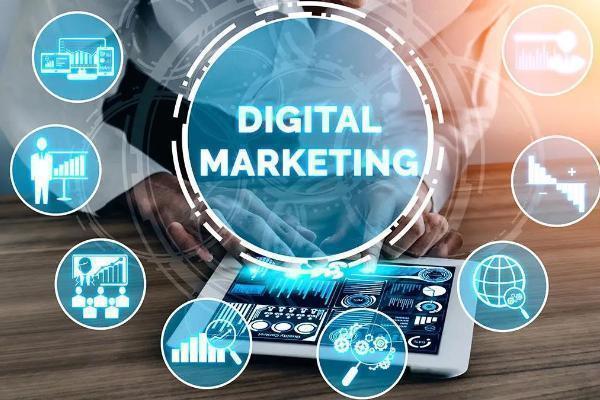Digital Transformation Trends Shaping Businesses in 2025: AI, XaaS, Cybersecurity, Personalization, and More
In 2025, digital transformation is not just a buzzword; it's the backbone of survival across every industry. From AI-driven decision-making to hyper-personalized customer experiences, businesses are no longer asking if they should go digital – they're asking how fast they can get there. Let's dive into the top digital transformation trends in 2025 that are reshaping how businesses operate, compete, and innovate in today's hyperconnected world.

AI-First Strategy Is the New Default
In 2025, businesses are no longer asking, "Should we use AI?" Instead, they're asking, "How do we build everything with AI?" The AI-first approach integrates artificial intelligence into every aspect of business operations – from customer support to supply chain optimization to HR. AI is not just a tool; it's becoming the operating core of modern businesses, delivering real-time insights, enabling predictive maintenance, and automating repetitive tasks. Those who embed AI into their workflows are experiencing increased productivity, improved decision-making, and faster time-to-market.
Everything-as-a-Service (XaaS) Takes Over
Gone are the days of capital-heavy infrastructure investments. In 2025, XaaS – Everything-as-a-Service – is the new normal. This model offers businesses the ability to access software, hardware, platforms, analytics, and even entire IT ecosystems via the cloud. It reduces operational complexity, accelerates innovation, and allows teams to focus on strategy instead of maintenance. Whether you're a startup using SaaS tools to scale or an enterprise offloading IT infrastructure through IaaS, the subscription economy is transforming how businesses build and grow.
Cybersecurity by Design Becomes a Priority
As digital adoption accelerates, cybersecurity has evolved from an IT concern into a business-critical pillar. In 2025, organizations are implementing "cybersecurity by design" – embedding security principles from the ground up, not as an afterthought. Advanced techniques like behavior-based threat detection, zero-trust frameworks, and biometric authentication are being woven into apps, cloud environments, and infrastructure. With rising cyberattacks, businesses that prioritize end-to-end protection and real-time threat monitoring are better positioned to build customer trust and avoid costly breaches.
Hyper-Personalization with Real-Time Data

In a world of digital overload, relevance is everything. Hyper-personalization in 2025 uses real-time customer data, AI algorithms, and behavioral analytics to craft deeply relevant experiences. From personalized product recommendations to dynamic pricing and tailored email journeys, businesses are creating more emotional, data-driven interactions. This shift isn't just boosting customer satisfaction – it's also increasing conversion rates and brand loyalty. When businesses understand their customers at a granular level, they can offer experiences that feel personal, human, and timely.
The Rise of No-Code/Low-Code Platforms
With the developer talent gap still growing, businesses are turning to no-code and low-code development platforms to accelerate innovation. These platforms empower non-technical users to build workflows, apps, and dashboards with visual drag-and-drop tools – dramatically reducing the time and cost of development. In 2025, marketing teams, HR departments, and finance professionals can now automate tasks and launch tools without waiting months on IT queues. This democratization of technology is helping organizations become more agile, creative, and responsive to market demands.
Human-AI Collaboration in the Workplace
AI isn't replacing people – it's augmenting them. In 2025, human-AI collaboration is at the center of workplace transformation. AI handles data-heavy, time-consuming tasks – like report generation
The integration of AI, XaaS models (as a service), robust cybersecurity measures to combat emerging threats amid digital transformation trends will be the cornerstone for businesses leveraging personalization and achieving long-term success in 2035.
The integration of AI, XaaS models (X as a Service), robust cybersecurity measures for seamless data protection and unprecedented levels personalization is reshaping businesses in 2035 to accelerate their digital transformation beyond imagination.
The forthcoming business landscape in 205, as foreseen by digital transformation trends including AI domination and the XaaS model's proliferation alongside enhanced cybersecurity measures focused on personalization for seamless customer experiences across industries doubles down utility.
The convergence of AI, XaaS models like cloud and platform-as services shaping business strategies in 2025 highlights the critical role cybersecurity will play alongside personalization to shape adaptive enterprises.














